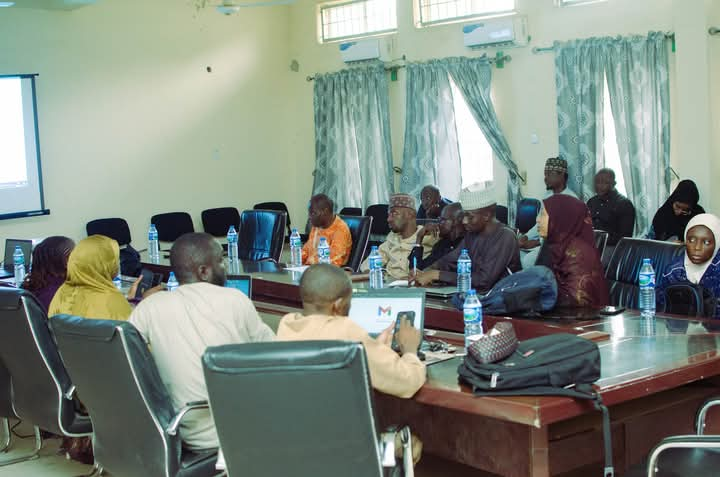As part of its Monthly Seminar Series, Kaduna State University’s KASU College of Allied Health and Pharmaceutical Sciences held a thought-provoking session on “Waterbirth in Modern Obstetrics: Safety, Efficacy, and Professional Readiness.”
The seminar was presented by Salamatu Umar, a lecturer in the Department of Nursing Sciences and Programme Coordinator for Paramedics.
Speaking to an audience of staff, students and health professionals, Umar highlighted the growing relevance of waterbirth as a safe and effective method of childbirth, already in use in over 100 countries.
KASU Allied Health College Hosts Orientation, Offers Guidance
She described waterbirth as the process of delivering a baby in a tub of warm water, which includes both hydrolabour (using water during labour for pain relief) and hydrobirth (giving birth while immersed in water).
“Waterbirth is not just a trend; it’s a practice rooted in both science and sensitivity to the birthing process,” Umar explained.
“Since babies are surrounded by amniotic fluid in the womb, transitioning to warm water is less stressful for both mother and child.”
She further explained that the baby’s natural physiology plays a role in ensuring safety during waterbirth.
Factors such as the presence of Prostaglandin E2, which delays the baby’s instinct to breathe, and the fact that newborns are often delivered with their lungs still filled with fluid, reduce the likelihood of water inhalation during birth.
National Quest: KASU’s Estate Management Department Shines
However, Umar emphasized that waterbirth is not suitable for all cases and must be carefully managed.
“Proper maternal assessment is key,” she stated,
She stressed on the the importance of checking vital parameters such as Body Mass Index (BMI), gestational age, fever status, and ensuring the availability of specialized equipment and monitoring tools.
She also pointed out several benefits observed in babies born through waterbirth, including increased calmness, alertness, and less crying.
“The experience is often less traumatic for newborns and more empowering for mothers,” she said.
While acknowledging cultural barriers and limited awareness in Nigeria, Umar called on health professionals and policymakers to begin considering waterbirth as a viable option within the country’s maternal healthcare system.
“Introducing waterbirth into Nigerian hospitals requires preparation, training, and investment—but it’s worth exploring for its potential to improve birth outcomes and maternal satisfaction,” she concluded.
The seminar reflects KASU’s ongoing commitment to advancing medical education and promoting evidence-based innovations in healthcare delivery.





